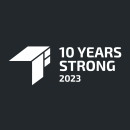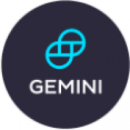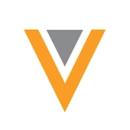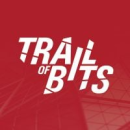In order to attract and retain new engineers, companies need to offer more than an interesting title and competitive salary. For NYC tech companies looking to grow their engineering teams, that means offering challenging projects with innovative technology.
At freight company Transfix, Manager Karina Ruzinov said they are working on a tool that would generate data that used to take 10 minutes to produce in just one click.
“Seeing the impact that our projects have on the day to day of our internal teams is extremely rewarding,” Ruzinov said.
At fitness tech company Peloton, Senior Engineer Brad Menchl is integrating third party apps into the company’s bikes and treadmills so users can optimize their workout routines. But it’s not just technology powering Peloton; it’s a collaborative engineering culture, too.
“Everyone takes initiative to build something of quality and constantly improve our work,” Menchl said.
What they do: Catalyst is a customer success platform that integrates customer service tools to provide one centralized view of customer data. Catalyst provides tools that allow customer success managers to prevent churn and increase product adoption. One of their newest projects lets users explore historical data in real time.
Catalyst’s tech stack: “Our core web stack is built on top of Ruby on Rails for an API, with a Vue.js single page app for the front end,” Dylan Watt, engineering manager of data and integrations, said. “We’re deployed on Google Cloud Platform using their managed Kubernetes service. We use a lot of Postgres servers, some tuned for OLTP for our main database, and some tuned for OLAP for events and analytics databases.”
Most interesting project: “We’re in the middle of an interesting sprint with historical reporting. It’s always been a struggle in my career to answer questions around not just what the data is right now, but what it was in the past. Normally, once you update your system, you’ve overwritten the old data. We’re building out a system to let users explore historical data in real-time, which is really cool.”
What makes the team unique: “There’s an incredible balance between delivering business value and engineering excellence. It’s a very hard path to balance, when you're developing a new product and learning what you need to build as you go to market. It’s very easy to either over-engineer and go too slow, or under-engineer and back yourself into a corner. There are a lot of people here who have done this before, and there’s a deep line of pragmatism around where to spend our time innovating that’s very rewarding.”
What they do: Transfix’s freight marketplace is connecting shippers with a national network of reliable carriers. Clients such as Anheuser-Busch, Unilever and Target trust the company for their FTL freight needs. The engineering team interacts directly with the front- end trucking team to better understand and overcome the complex challenges they face.
Transfix’s tech stack: “Transfix uses Ruby on Rails and Postgres for their core data store. They allow us to know how well our deploys are doing, how our users are impacted by deploys and the general stability of our product,” Ruzinov said.
Most interesting project: “The transportation industry is constantly changing and evolving, so we want to make sure our internal employees have the data they need exactly when they need it in order to make the best possible business decisions. We’re currently working on a tool that takes data, which historically has taken over 10 minutes to generate, available with one click. Improving inefficient processes and breaking down barriers to data allows our team to succeed.”
What makes the team unique: “My favorite part of our engineering organization is our ability to directly interact with the people working on the front lines of our industry. The nature of the transportation industry provides for very interesting and complex challenges that can only be solved by living through them. We’ve formed relationships with truck drivers to work hand in hand on our external products, to ensure we’re doing everything we can to grow their business, and even to improve their quality of life.”
What they do: SmartAsset’s mission is to help people make better decisions with their money. To do that, they publish data-driven content, and offer personalized calculators and educational tools that help more than 65 million users make smarter financial decisions.
SmartAsset’s tech stack: “My favorite tools in our tech stack right now are the whiteboards and the architectural reviews we’ve been doing,” Director of Software Engineering Bryce McDonnell said. “We’ve made a decision to leave the monolith and use more modern tooling to support an enterprise message bus. We’re building competencies in Kinesis, Django, Spring and a variety of other technologies to the level of maturity in our technical organization that will sustain us for the next decade.”
Most interesting project: “As the business matures, we realize we need to do substantial decoupling of the various domains we created to build the business. To that end, one of our engineering teams is building a custom telephony application that powers how we connect investors with advisors. It’s a challenging synthesis of telephony, web development, business process management and intricate background job processing.”
What makes the team unique: “The tech team at SmartAsset has a good grasp of first principles. What makes us unique, though, is our creativity. Outside of work, the engineering team creates music and abstract art and even designs light shows. I’m amazed how much of our team that went to top computer-science schools is also able to create artistic experiences outside of work.”
What they do: As the finance industry goes digital, paper credit card applications are becoming outdated. Bread Finance provides digital point-of-sale financing options for e-commerce merchants.
Bread Finance’s tech stack: “Bread has a very modern service-oriented tech stack with Go and React as our primary languages and Postgres, Redis, gRPC, and S3 among other technologies used,” Senior Director of Engineering Peter Greczner said. “Everything runs on top of AWS, orchestrated using Chef, Terraform, and CI/CD pipelines. We also have a Kubernetes cluster, called “Bakery” that affords engineers a lot of flexibility to deploy, test, remotely build, demo and release projects. My favorite part is probably our adoption of Kubernetes into our architecture and I am a big fan of Go.”
Most interesting project: “I’m most excited about the push to have our services running on top of Kubernetes in production. We have had an amazing Kubernetes development environment running for the past year and a half and it’s shown us the value of Kubernetes and has generated in-house knowledge on how to manage it properly.”
What makes the team unique: “Engineers at Bread actually get the fabled ‘20 percent time.’ Each quarter we establish a few working groups, teams of four to eight people based upon an engineering tool or need that doesn’t always slot nicely into a single engineering team. These teams meet once per week and some groups have worked on our logging infrastructure, a community and blogging group, and general quality improvements. The working groups have engineers from disparate teams so it’s a great opportunity to work with engineers you don’t normally work with, explore new technologies and improve engineering.
What they do: Peloton creates a boutique workout class environment from the convenience of a user’s living room via their bike, tread and mobile app. The company is currently working on integrating third party apps that measure indicators like cadence and speed, so users can improve their performance.
Peloton’s tech stack: “Outside of our connected fitness products, we have several teams working on the iOS, Android and TV versions of the Peloton app,” Brad Menchl, senior engineer, said. “We’ve built a fairly robust TypeScript codebase that services every internal and external web client, as well as every version of the Peloton app that uses React Native.” They also use Redux for state management and Redux Saga for orchestration of side effects.
He added: “We generally lean toward more team autonomy and ownership of their own stacks and processes, so we’ve adopted pipeline-as-code CI/CD with CircleCI, and Netlify for web hosting and some cloud functions. We’ve also been recently switching some API interactions over to GraphQL using Apollo, and that’s been an interesting migration.
Most interesting project: “I’ve recently started working on more hardware integration projects. While we’re able to rely on a lot of the same core app logic as third party apps, bringing in things like cadence and heart rate sensors significantly increases the complexity of the application. We’re working closely with the bike and tread teams to build out a similar code-sharing system, as we have in place with our TypeScript codebase, so we can rely on well-tested native packages and TypeScript modules and spend most of our time gluing everything together and focusing on what makes our application unique to the others.”
What makes the team unique: “Everyone takes initiative to build something of quality and constantly improve our work. There is a strong culture of being deliberate and thinking about how each new piece that we build should interact with the whole. We constantly strive for the almost utopian ideal of perfect code-sharing across every team at Peloton, and trying to balance that with team autonomy and flexibility.”
What they do: Gemini is a licensed digital asset exchange and custodian. On the Gemini platform, customers can buy, sell and store digital assets like Bitcoin, Ethereun and Zcash in a regulated, secure and compliant manner. Engineering teams are currently focused on adding Filecoin support along with improving Bitcoin-related projects.
Gemini’s tech stack: Scala on the back end for its versatility and support of both object-oriented and functional programming.
“When working with such a large codebase, it becomes difficult to account for all possible execution paths and Scala makes this easier for us to manage by forcing completeness with features like exhaustive pattern matches,” Aris Agdere, senior software engineer, said. “It also allows us to develop using concise syntax while maintaining strict type safety.”
Most interesting project: “I’m currently working on adding Filecoin support to the Gemini Custody product. Before joining this project, I mainly focused on the far more common Ethereum and Bitcoin-related protocols. While those excel in the storage and transfer of value, Filecoin features an on-chain marketplace for decentralized file storage. I enjoy working closely with Filecoin engineers and exploring how the business needs of a product affect protocol design choices and prioritization of features.”
What makes the team unique: “Since we have some flexibility to choose what we’re involved with based on our preferences, each project I've worked on has been more exciting than the last.”
What they do: Crossix is a health-focused tech company dedicated to advancing healthcare marketing with analytics and innovative planning, targeting, optimization and measurement solutions. The engineering team is working on a new tool that schedules, organizes and monitors complex workflows.
Crossix’s tech stack: AWS tools (Redshift and EC2), Python, Matillion and SQL.
Most interesting project: “The creation and refinement of our parallel orchestration framework — a tool that schedules, organizes and monitors complex workflows — that we have released for a few DIFA products,” Analytics Supervisor Sterling Rong said. “This is essentially an in-house framework similar to open-source solutions, such as Apache Airflow and Dagster, that we can use to schedule, automate and run analytics for potentially all Crossix products. I’m excited to onboard other products to this design and continue to add new functionality to support more and more use cases.”
What makes the team unique: “Good vibes are a top priority on our team. Liverpool soccer games are split-screened with codebase and heated discussions over “The Bachelor” happen at lunch. This fun attitude definitely transfers into our work. Even when some members are remote, we always find ways to build a fun team chemistry.”
What they do: Brex’s financial products help companies grow. Its corporate credit card gives companies more control over how they spend, save and borrow. Soon, the company will be launching Brex Cash, a cash management account that can replace the bank.
Brex’s tech stack: Elixir on the back end and React on the front end with TypeScript.
“Our engineering team is a big fan of functional programming,” Engineering Director Edwin Chau said. “Python is used by our data teams and Go by our infrastructure teams. We run a microservices architecture orchestrated by Kubernetes (EKS) on top of AWS, leveraging technologies such as Postgres (RDS), Kafka, ElasticSearch and GRPC, with continuous deployments.”
Most interesting project: The Brex Cash product for general availability.
“Brex Cash is a cash management account that replaces a bank. Paired together with our credit card product, this moves Brex closer in the direction toward our vision of being the financial operating system for any growing business. The team did an amazing job building the foundation and launching Cash in an early access program last October.
Now, we’ve been adding new functionality and bringing the cash and card products into one cohesive experience. It’s challenging because we have nearly 100 people in the company involved, which means a lot of cross-functional coordination. This requires having a pulse on how more than seven engineering, product and design teams and 20-plus workstreams are doing. With such a large initiative, there’s bound to be surprises along the way, and one of the biggest learnings is how to anticipate and deal with this uncertainty.”
What makes the team unique: How willing the team is to do whatever is right for the business.
“People don’t think just about doing only what their team is responsible for, but also what’s best for the company and thinking about how individuals can help the company succeed.
In order to help facilitate this type of culture, Brex is extremely transparent as a company. We share very sensitive company financials during the all-hands meetings by walking through the balance sheet and profit and loss statement, line by line to make sure that the whole company understands our business. It shows the amount of trust the company has with the team.”
What they do: Every company needs security protection in the digital age. Trail of Bits provides security for targeted organizations and products. With security research, they are able to reduce risk and fortify code. To compete in the market, Trail of Bits engineers are designing and building new tech to stay ahead of hackers.
Trail of Bit’s tech stack: For blockchain projects, they turn to in-house tools like Slither, Echidna and Manticore.
“Recently, I’ve been finding Slither particularly helpful, as it tends to find common bugs quickly and highlights parts of the code which use dangerous anti-patterns,” Senior Security Engineer Ben Perez said. “I’m also really excited about some new Rust security tools we’re working on, like Siderophile, which helps developers find fuzzing targets by discovering unsafe code.”
Most interesting project: “One exciting theme that has emerged over the past six months is that we’re working with a lot of companies deploying cutting-edge cryptography. This presents an interesting set of problems, as many of these protocols only existed as academic publications up until now. As you might expect, there’s a wide gap between mathematically specifying a cryptosystem and actually deploying it.”
What makes the team unique: “Our culture emphasizes engagement in academic research, and our team frequently publishes work in journals and conference proceedings. Having a team full of people engaged in both academia and software assurance opens up avenues for collaboration and knowledge-sharing I haven’t seen elsewhere.”
What they do: For employees that don’t want to wait every two weeks for a paycheck, DailyPay allows them to have real-time access to earned but unpaid wages. According to its website, companies that offer DailyPay have reported a decrease in employee churn and an uptick in employee engagement.
DailyPay’s tech stack: On the back end, Ruby on Rails with a Postgres database. On the front end, vanilla JavaScript and jQuery.
“Most people in our team really enjoy the back end, so for me, Rails is my favorite,” Senior Software Engineer Musa Raza said. “It's a framework that is incredibly easy to learn, but as you gain experience in it, you realize the underlying complexity of what goes on under the hood. You have to be meticulous with it, as code smells are easy to introduce due to its ease of use.”
Most interesting project: “Our mission is to make the world a better place by alleviating economic anxiety for our customers. That means we cannot have any downtime given the volume of payments we process hourly. I enjoy the pressure that brings, as it motivates me to perform to the best of my abilities. Our team owns the business logic of the application, and that has evolved significantly over time. Hence, a lot of code that was written was either not built to scale or is outdated. This has allowed us to have really meaningful discussions with senior engineering leadership about the future of DailyPay, and how to implement that vision technically.”
What makes the team unique: “There are no egos here and every engineer is always willing to help. We allow flexibility in working, whether you like to work alone or pair for hours on end. An altruistic cause of financial security for all Americans is something our team really believes in, and this allows us to foster a collaborative working environment.”














